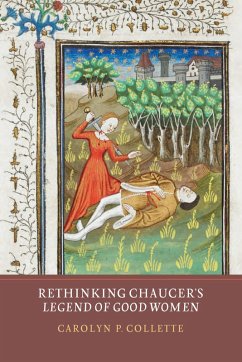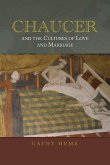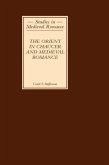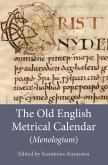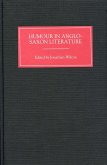A fresh reading of the Legend shows it to be one of Chaucer's most carefully crafted and significant works.
Professor Collette's approach to this challenging and provocative poem reflects her wide scholarly interests, her expertise in the area of representations of women in late medieval European society, and her conviction that the Legend of Good Women can be better understood when positioned within several of the era's intellectual concerns and historical contexts. The book will enrich the ongoing conversation among Chaucerians as to the significance of the Legend, both as an individual cultural production and an important constituent of Chaucer's poetic.achievement. A praiseworthy and useful monograph. Professor Robert Hanning, Columbia University.
The Legend of Good Women has perhaps not always had the appreciation or attention it deserves. Here, it is read as one of Chaucer's major texts, a thematically and artistically sophisticated work whose veneer of transparency and narrow focus masks a vital inquiry into basic questions of value, moderation, and sincerity in late medieval culture. The volume places Chaucer within several literary contexts developed in separate chapters: early humanist bibliophilia, translation and the development of the vernacular; late medieval compendia of exemplary narratives centred in women's choices written by Boccaccio, Machaut, Gower and Christine de Pizan; and the pervasive late fourteenth-century cultural influence of Aristotelian ideas of the mean, moderation, and value, focusing on Oresme's translations of the Ethics into French. It concludes with two chapters on the context of Chaucer's continual reconsideration of issues of exchange, moderation and fidelity apparent in thematic, figurative and semantic connections that link the Legend both to Troilus and Criseyde and to the women of The Canterbury Tales.
Carolyn Collette is Emeritus Professor of English Language and Literature at Mount Holyoke College and a Research Associate at the Centre for Medieval Studies at the University of York.
Professor Collette's approach to this challenging and provocative poem reflects her wide scholarly interests, her expertise in the area of representations of women in late medieval European society, and her conviction that the Legend of Good Women can be better understood when positioned within several of the era's intellectual concerns and historical contexts. The book will enrich the ongoing conversation among Chaucerians as to the significance of the Legend, both as an individual cultural production and an important constituent of Chaucer's poetic.achievement. A praiseworthy and useful monograph. Professor Robert Hanning, Columbia University.
The Legend of Good Women has perhaps not always had the appreciation or attention it deserves. Here, it is read as one of Chaucer's major texts, a thematically and artistically sophisticated work whose veneer of transparency and narrow focus masks a vital inquiry into basic questions of value, moderation, and sincerity in late medieval culture. The volume places Chaucer within several literary contexts developed in separate chapters: early humanist bibliophilia, translation and the development of the vernacular; late medieval compendia of exemplary narratives centred in women's choices written by Boccaccio, Machaut, Gower and Christine de Pizan; and the pervasive late fourteenth-century cultural influence of Aristotelian ideas of the mean, moderation, and value, focusing on Oresme's translations of the Ethics into French. It concludes with two chapters on the context of Chaucer's continual reconsideration of issues of exchange, moderation and fidelity apparent in thematic, figurative and semantic connections that link the Legend both to Troilus and Criseyde and to the women of The Canterbury Tales.
Carolyn Collette is Emeritus Professor of English Language and Literature at Mount Holyoke College and a Research Associate at the Centre for Medieval Studies at the University of York.
Dieser Download kann aus rechtlichen Gründen nur mit Rechnungsadresse in A, D ausgeliefert werden.

